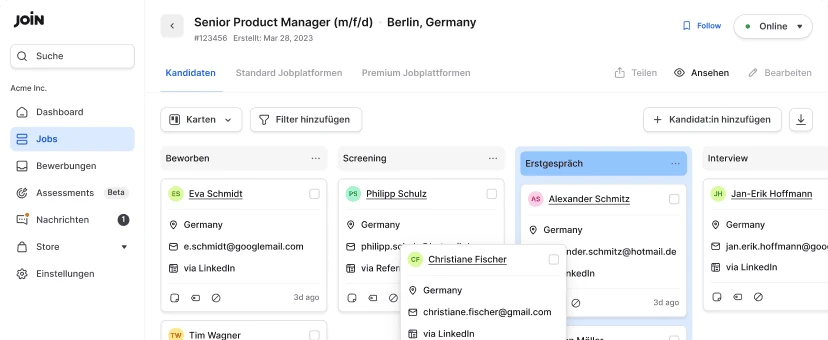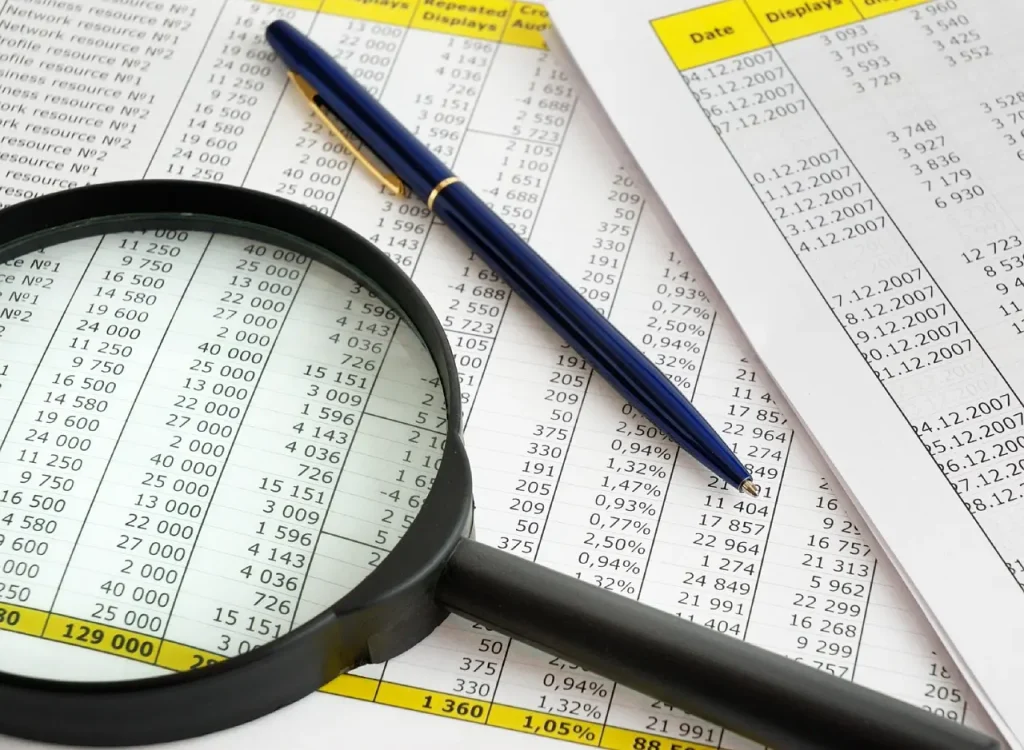Best interview questions for your hiring process
Procurement Manager Interview questions
A Procurement Manager is an expert in sticking to budgets, sourcing quality stock and keeping track of your delivery dates. They play an essential part in your product journey and will ensure that relationships with suppliers are nurtured. Because of this, it is important to make the right hiring decisions here.
You should seek these skills in your Procurement Manager:
• Excellent negotiation skills.
• Great mathematical ability.
• Perfect written and verbal communication skills.
• Ability to track and chase deliveries.
• Confidence in handling large budgets.
Interviewing a Procurement Manager
Since a Procurement Manager will be handling large amounts of budgets, negotiating with external stakeholders and ensuring they make the right purchases for your business (and customers!) You need to hire a person who you can trust with these huge tasks.
Therefore, properly vetting your candidates is a must.
Luckily, we’ve put together a guide containing interview questions that’ll help you sift through suitable clients early on in the interview process.
How to open the job interview
If your potential Procurement Manager feels too nervous or uncomfortable to let their personality and skills shine through, you may not make the best hiring decision you can. Therefore, putting them at ease before properly diving in is a good idea.
This can be done quickly and easily by asking a couple of positive questions to open up the interview.
Best interview questions for your hiring process
See our Procurement Manager job description hereFor the interview
A positive opener to start
What kickstarted your career in Procurement Management?
What is the proudest moment of your Procurement career?
Behavioral Questions
When working with a supplier with whom you’re struggling to form a relationship with, how do you stay motivated and overcome this?
What type of work environment do you function best in?
This question gives you the chance to compare a candidate’s preferred working environment with your workplace. This will give you an idea of how well they will fit in and whether they have the adaptability needed to succeed in your business.
If you made a purchasing error that negatively affected the business, how would you deal with this and what would you do to ensure you learned from this mistake?
Mistakes happen to everyone, whether at the start or peak of their career. Knowing your candidate can do whatever possible to minimise the damage from the mistake, communicate with their stakeholders and learn from this is an excellent quality to hold.
When working to several tight deadlines with multiple stakeholders, how do you remain on track and organised?
This will be a huge part of a Procurement Manager’s role. It’s important to know that they have learned behaviours to help cope and thrive when working to these deadlines.
Soft Skills
When working with a stakeholder who disagrees with your procurement decisions, how do you take these comments into account while maintaining your deadlines?
Procurement Managers need to be confident in their decisions while remaining professional and open to comments from their colleagues. This question will demonstrate their communication and collaboration skills while testing their confidence.
If struggling to come to an ideal decision on a price for a purchase from a supplier with whom you have a good relationship, how do you deal with this situation?
A huge part of a Procurement Manager’s job is negotiating prices and delivery dates. Knowing that the candidate has several skilled negotiation techniques, as well as the ability to problem-solve and adapt, is essential.
What skills do you hold that you believe equip you well for a Procurement Management role?
This question gives the candidate the ability to show off their confidence and demonstrate some skills that they can bring to the table. This answer can cover both soft and hard skills.
When explaining your procurement decisions to someone with less technical knowledge than you, how do you ensure they fully understand you?
When working with stakeholders both within and outside the business, a Procurement Manager may have to use simpler terms than they use in the day-to-day business. This is important when reporting or working with other teams. Knowing this communication skill is something the candidate holds is essential.
Hard Skills
Which Procurement software and systems do you have experience with using?
This answer will give you a detailed insight into whether the systems your candidate is experienced with match up with the ones you currently use. It will also let you know what they need to be onboarded onto.
What factors and criteria do you prioritise when speaking to a new supplier and deciding whether they’re a good fit to work with?
Occasionally, Procurement Managers will be involved in selecting and onboarding new suppliers. This answer allows you insight into which points they use to assess a ‘good’ supplier, and whether this matches up to your company’s values.
When performing competitor and market research and/or analysis, which tools do you use and which metrics do you check?
Staying on top of the industry means knowing what your competitors are up to. Here, you’ll get the chance to analyse whether a candidate can accurately and confidently perform industry analysis and forecast trends for the next season.
Which budgeting tools and techniques do you use on a daily basis? How do you use them?
Knowing that a Procurement Manager is a budgeting expert, with experience in using common budgeting tools is a huge benefit for your candidate.
How much experience do you have drafting or editing supplier contracts?
Your candidate may or may not have to have input on supplier contracts depending on your specific role. However, knowing whether they have experience in this area is always useful.
Operational / Situational Questions
Describe a time when a supplier was unable to meet your order requirements, whether this was in quantity or by meeting a deadline. How did you overcome this and learn from the experience in the future?
From time to time Procurement Managers may experience issues with suppliers not being able to meet their stock requirements or deadlines. In order to stay on track with their calendars and meet customer demands, it is essential that the Procurement Manager can deal with this, whether this is by having partial shipments delivered or onboarding a new supplier.
Imagine that you receive a delivery from a trusted supplier and find that the quality is not up to standard. What would your next steps be?
Here, you’re looking for swift and thorough communication skills from your candidate. The problems should be communicated with the supplier, and depending on the severity of the quality problems, a discount or reshipment can be arranged. Steps should also be taken to ensure the problem does not occur again. The relationship with the supplier should also be taken to mind, however, and all communication should remain professional.
Describe a time where your department’s orders for the season have been above budget. How did you rectify this situation?
Often, a department will end up over budget when planning their season’s orders. Knowing your Procurement Manager can accurately weigh up the customer’s needs and requirements while sticking to a strict budget will give you confidence when these situations arise.
Describe your process when onboarding and forming a relationship with suppliers.
Supplier relationships are the difference between getting your stock for a good price and a great price. Onboarding a supplier will be the first step to a great relationship with them, but it is equally important to nurture the relationship over time. This question aims to find the techniques your candidate uses to do this.

Start hiring and prepare your interview
All platforms are available for you to promote your job through JOIN.
Create job ad for free


Working with a difficult supplier can be challenging, and if a relationship isn’t formed this can mount up in unnecessary costs and delays. Knowing that your Procurement Manager can stay positive and motivated as well as employ some techniques to rectify the relationship is a huge box ticked for the candidate.